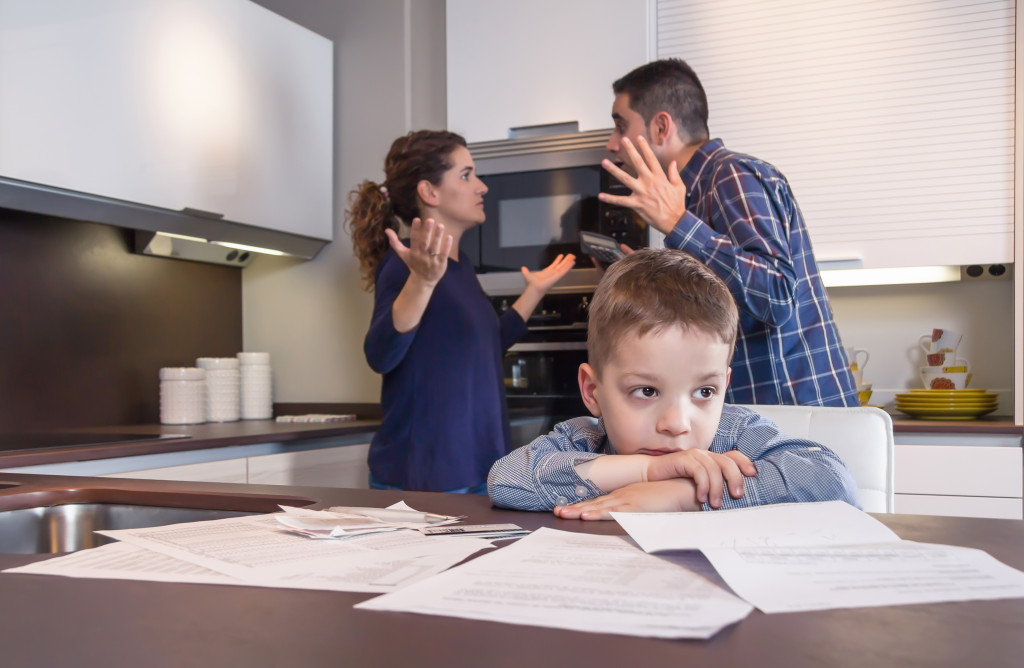- Divorce can be challenging, but prioritizing your children’s needs while negotiating custody and support is essential.
- Minimizing conflict and maintaining open communication during the divorce process benefits all family members.
- A willingness to compromise on issues like custody and visitation rights is crucial for a smooth process.
- A positive co-parenting relationship, which includes a well-structured plan and flexibility for changes, supports children’s well-being.
Divorce is always a challenging experience – especially for parents. The process can be overwhelming, heated, and sometimes even bitter, with emotions running high and everyone trying to protect their interests. While fighting over child custody, support, and visitation rights might seem like the most pressing matters, it is essential to remember that your primary goal is to do what is best for your children, both now and in the future.
This blog will explain the most important things you need to know about your parenting responsibilities during the divorce process and how to ensure your children feel loved, safe, and supported.
Always Put Your Children First.
As a parent going through a divorce, it can be easy to get wrapped up in your own feelings and forget about your kids. Remember, this can be challenging for them, and your job is to ensure they feel as supported and loved as possible. This means prioritizing their needs and doing everything you can to look out for their best interests – even if it means compromising on your own wants and needs.
You should also hire an experienced child custody attorney who can help you negotiate with the other parent and ensure that your children receive all of their rights under the law. A good attorney can also help you make sure that any child support arrangements are fair.
Minimize the Conflict.
The more parents can work together without conflict, the smoother the divorce process will be for everyone involved – especially the kids. Make it a priority to keep communication lines open with your spouse, and try not to let anger or frustration cloud your judgment. Instead, focus on finding practical solutions that work for your family in the long term, not just the short term.
Be Willing to Compromise.

Compromise is key during divorce, particularly regarding issues like child custody and visitation. Rather than insisting on having things done your way, be willing to meet your ex halfway and create a fair and equitable agreement that works best for everyone involved.
Keep Your Children Out of the Conflict.
As tempting as it can be to air your grievances about your ex to your children, this is never a good idea. Divorce can be a confusing and stressful time for children, and dragging them into adult conflicts can only worsen things. Keep your kids out of the conflict between you and your spouse, and instead, try to keep things as calm and peaceful as possible.
Create a Positive Co-parenting Relationship.
While you and your ex may no longer be romantically involved, you will always be co-parents to your children. Take active steps to have a positive co-parenting relationship with your ex to ensure your children have a positive role model in both their parents. Here are the four steps you need to take to achieve this:
Have a positive attitude.
Having a positive attitude will go a long way in creating a successful co-parenting relationship. Even in the face of conflict or disagreements, try to focus on what’s best for your children and maintain an attitude of mutual respect and understanding.
Create a plan.
Structure and consistency are essential when it comes to successfully co-parenting after divorce, so make sure you have a plan in place that outlines how decisions will be made, visitation and custody arrangements, and how conflicts will be handled.
Keep your children out of the middle.

Your kids should never feel like they’re stuck in the middle of their parent’s issues. If they are having problems with one parent, don’t ask them to take sides or pass messages on to the other parent.
Stay open to change.
Flexibility is important in co-parenting, as life circumstances can change quickly. Allow your parenting plan to evolve and be willing to adjust it as needed – even if it means having uncomfortable conversations with your ex.
By having a positive co-parenting relationship with your ex, you can ensure your children feel supported, safe, and loved no matter what.
Navigating a divorce can be stressful and emotionally challenging, especially when children are involved. However, by putting your children first, keeping them out of adult conflicts, and creating a positive co-parenting relationship, you can help ensure they feel loved, safe, and supported. With patience, perseverance, and an unwavering commitment to your children’s well-being, it is possible to emerge stronger and more resilient from the experience.


